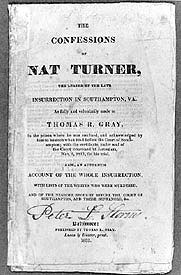Storytelling is often seen as being only sharing folktales and entertainment. This, however, is not true. Stories are important to understanding history. Oral histories are an important way of collecting research from people that do not have a written history. Whether it is Africa American slaves sharing their stories with lawyers, such as Nat Turner‘s confessions, or a Native American storyteller sharing a myth that explains why a particular people believe what they do histories that are shared by word of mouth are important and often taken as truth.
What turns many people away from trusting stories as valid evidence is bias. Growing up I was always told by my teachers that bias was bad and should be avoided at all costs. However, when I started college and began my career as a “historian in training” I learned something very different.
Everything is biased. Even numerical studies. How something is written can completely change what it means. For example, Nat Turner’s confessions were taken down by Thomas R. Gray, a southern physician and lawyer. Because of that, historians will never know exactly what Nat Turner said, it is only known through the writing of Gray. However, these confessions are still widely used for research because it is all the evidence that we have of Turner’s confessions. Gray had bias in what he wrote down; just like there is bias in the story that you tell your friend about what you saw on vacation. You are telling the events through your eyes therefore it is a biased story.


Leave a response